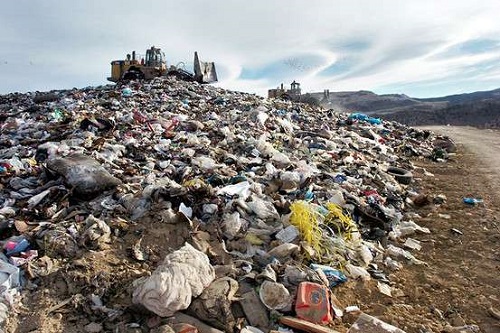By
Jameel W. Karaki
According to the World Urbanization Prospects Report, more than half of the world’s population live in cities. This is expected to grow to 63% by 2050 (UN, 2014). This growth accompanied with development plans, puts cities under inevitable challenges in terms of managing extraordinary growth, energy shortage and sustainable municipal solid waste management, which to date has been highly neglected as a factor of environmental management in developing countries. Sustainable Waste Management is concerned with practices such as recycling, reusing solid waste materials and converting waste to energy.
Such practices were adopted by many countries to increase resource recovery, and minimizing waste production, includingthe Gulf Cooperation Council states (GCC). During the last decade, these states had a remarkable interest in renewable energy despite their significant financial resources and oil reserves. At the same time, there was also an eye on improving current solid waste management practices. For example, Saudi Arabia recognized that a mass burn with recycling scenario shows a potential energy demand reduction of about 55.6 million barrels of crude oil. Similarly, Qatar had invested material resources into waste management initiatives to curb the problem of carbon wastes in its cities. Likewise, UAE launched “Masdar”; an initiative to combat climate change, create a zero waste city and depend on alternative sources of energy.
As for Kuwait, a drastic shift towards sustainable waste management policies was taken by the Partnerships Technical Bureau (PTB) which launched Kabd, one of the largest waste to energy public–private partnerships in the region. The project aims to build a facility to treat municipal solid waste with an approximate capacity of 3,275 tons per day using waste to energy to generate energy.
Indeed, such a project has a range of benefits such as climate change mitigation, overcoming the limitations of space, facing the increasing demand on energy and unnecessary transport of waste. Economically, it will create job opportunities for Kuwaitis, attract investments in green technologies and create a market for recoverable materials. In addition, it is an incremental step to save resources for the future generation, face urbanization and improve the environmental impact of current waste management systems that mainly rely on landfilling in three landfills.
Due to the high purchasing power and lifestyle patterns the total daily waste produced in Kuwait is about 4,000 tons, with an average of 1.5 kg per capita, a high rate compared to world levels.
Waste-to-Energy (WtE) is composed of a wide range of technologies and techniques including incineration, pyrolysis, gasification, landfilling anaerobic digestion and co-combustion in existing industrial plants. Moreover, a variety of waste management solutions have been introduced in many countries, including the circular economy in China, zero waste in Australia, Denmark and South Africa, and industrial symbiosis in Europe. What is common among these approaches is to convert waste into energy or a useful material.
Nevertheless, the cure for the current waste management dilemma in Kuwait today is not only about choosing the right treatment process. It is more multifaceted and linked to human behavior, production patterns, policies, regulations, lifestyle and user practices, yet I am not pessimistic at all.
Inspired by the famous urbanist Jane Jacobs, Kuwait can utilize this project to embark on a journey towards sustainable waste management practices and turn into an innovation hub by focusing on three elements. First, understanding the triggers of urbanization and consumer behavior, which mainly occur through: growing demands of resources, e.g. water, energy, materials, the loss of biodiversity and demographical changes. Second, revisit the current urbanization processes with an increasing number of rapidly expanding suburbs, as well as material and energy production industrial method. Third, promoting the waste produced by residential, commercial, institutional and public zone activities is a valuable material.
Operationally speaking, Kuwait will have to go through transitions, which will involve a change in infrastructure, regulations, policies, practices and behavior patterns that are embedded within the current system. Such a change in my opinion might take a time-span of 25 years and this can be demonstrated by the railway-system in the USA from the water-channel system or the change from horse-carriages to engine-driven vehicles. In both cases it was mostly the societal challenge like policies along with the willingness of the people, which hindered and prolonged a change for a long time, convincing power was needed to move this change forward. So the challenge in transitions might depend on the development of a new mantra which influences common practices and structures.
In summary, some might be skeptical about Kabd and others might view it as an opportunity for Kuwaiti innovators and entrepreneurs who have visions in mind of how a desirable future comprehensive waste sustainable waste system should look, and how to achieve short-term goals to make these visions become reality. Finally, Kbad can be the chance to deviate from the current waste management practices to a momentum of change towards transforming waste into sustainable materialsor; a zero waste Kuwait, who knows?
Jameel W. Karaki
Jameel is an International Affairs journalist, and copy writer, who is trying to understand sustainable urbanism, smart cities and politics. He holds a Master in Sustainable Urban Development from the University of Oxford, A Masters in Public Governance in the Arab World from the University of Granada and a BA in Economics from the American University of Kuwait.



No Comments Yet!
You can be first to comment this post!